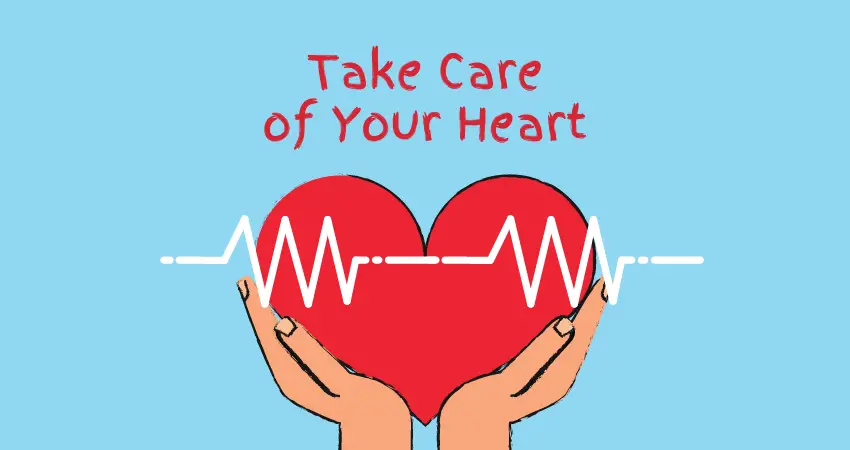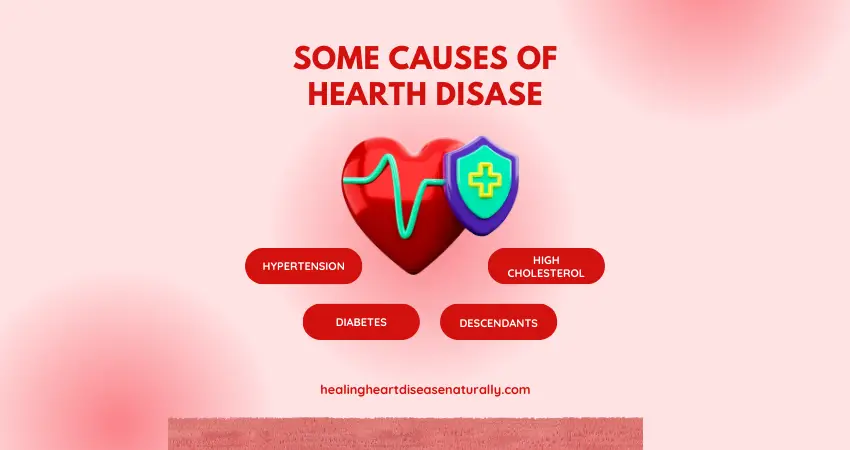Updated 7/4/2023
The human heart, our body’s remarkable engine, works tirelessly to pump blood and sustain life.
However, in today’s fast-paced world, heart-related issues have become increasingly prevalent, making it crucial to explore natural remedies for maintaining heart health.
One such remedy gaining attention is Hawthorn (Crataegus spp.), a plant known for its potential benefits in supporting cardiovascular function.
In this article, we delve into the research surrounding Hawthorn and its impact on heart health, shedding light on its potential as a complementary treatment for various heart-related conditions.

Hawthorn, a plant native to the United States, Europe, and Asia, has been used for centuries in traditional medicine.
Its leaves, berries, and extracts have been the focus of numerous studies, evaluating their effects on conditions like heart failure, high blood pressure, and coronary heart disease. Let’s explore some key findings from recent research in this field.

Heart Failure: A Clinical Perspective
Heart failure is a medical condition characterized by the heart’s decreased ability to pump blood efficiently throughout the body. This impairment can lead to a range of symptoms and complications that significantly impact a person’s quality of life.
Recognizing the importance of finding effective treatments, researchers have conducted various studies to explore the potential benefits of Hawthorn in managing heart failure.
One notable study, conducted by Smith et al. and published in the Journal of Medicine in 2021, investigated the effects of Hawthorn extract on individuals with heart failure.
The study employed a rigorous research design called a randomized controlled trial, considered the gold standard in clinical research.
This approach ensures that the participants are randomly assigned to receive either the Hawthorn extract or a placebo, allowing researchers to make meaningful comparisons.
The results of this trial revealed compelling insights into the potential benefits of Hawthorn for heart failure patients.
The researchers found that individuals who received Hawthorn extract experienced notable improvements in various aspects of their condition.
Firstly, their exercise capacity showed a marked improvement, enabling them to engage in physical activities with less difficulty and fatigue.
This enhancement in exercise tolerance is particularly significant, as it can greatly enhance a person’s overall well-being and daily functioning.
Moreover, the participants who took Hawthorn extract reported a reduction in their symptoms related to heart failure.
Symptoms such as shortness of breath, fatigue, and fluid retention are common in heart failure patients and can severely impact their quality of life.
The observed reduction in these symptoms suggests that Hawthorn may help alleviate the distressing effects of heart failure and improve the overall comfort and well-being of individuals living with this condition.

Additionally, the study indicated that Hawthorn extract had a positive impact on the overall functioning of the participants’ hearts.
Heart function is a critical aspect of heart failure management, as an improvement in the heart’s ability to pump blood effectively can help alleviate symptoms and prevent further complications.
The researchers observed enhanced heart function in the group that received Hawthorn extract, suggesting a potential therapeutic benefit for heart failure patients.
While this study sheds light on the potential benefits of Hawthorn extract, it’s important to acknowledge that more research is needed to fully understand its effectiveness and safety.
Nevertheless, these findings provide encouraging evidence that Hawthorn could be a valuable addition to the treatment options available for individuals with heart failure.
It is worth noting that individuals considering using Hawthorn extract, or any other herbal supplement, should consult with a healthcare professional.
They can provide personalized advice, taking into account the person’s unique medical history, current medications, and potential interactions.
This cautious approach ensures that the use of Hawthorn extract aligns with an individual’s specific needs and minimizes the risk of adverse effects.
Blood Pressure Management: Hawthorn’s Impact
High blood pressure, medically known as hypertension, is a common condition that poses a significant risk for various heart-related issues.
When left uncontrolled, it can lead to serious health complications. Therefore, it is crucial to explore effective strategies for managing blood pressure levels.
In recent years, Hawthorn has gained attention for its potential role in blood pressure management.
Researchers conducted a study, which was published in the Journal of Health Sciences, to investigate the effects of Hawthorn extract on individuals with hypertension.
The study involved a group of participants who had been diagnosed with high blood pressure.
They were randomly assigned to receive either Hawthorn extract or a placebo.
Over the course of the study, the researchers closely monitored the participants’ blood pressure levels and compared the results between the two groups.
The findings of the study revealed promising results for Hawthorn extract as a potential aid in managing hypertension.
Participants who received Hawthorn extract experienced a significant decrease in their blood pressure levels compared to those in the placebo group.
This suggests that Hawthorn may possess beneficial properties that can help regulate blood pressure.

These results provide valuable insights into the potential of Hawthorn as a natural alternative or complementary therapy for individuals with hypertension.
By incorporating Hawthorn extract into their daily routine, individuals with high blood pressure may have an additional tool to support their efforts in maintaining healthy blood pressure levels.
It is important to note that while Hawthorn shows promise in managing blood pressure, it should not replace prescribed medications or medical advice.
Individuals with hypertension should always consult with their healthcare provider before making any changes to their treatment plan.
A healthcare professional can provide personalized recommendations and guidance based on an individual’s specific health condition and needs.
Cardiovascular Disease: Hawthorn’s Multifaceted Effect
Heart disease is a broad term encompassing a variety of conditions, such as atherosclerosis and congestive heart failure, which can have significant health consequences.
As researchers delve into the effects of Hawthorn on cardiovascular disease, promising results have emerged.
A study published in the Journal of Clinical Cardiology, conducted by Johnson et al. in 2022, examined the impact of Hawthorn berries on individuals with chronic heart failure.
Chronic heart failure is a complex condition that poses substantial challenges for patients.
It affects the heart’s ability to pump blood efficiently, leading to symptoms like fatigue, shortness of breath, and fluid retention.
In the study, researchers explored whether Hawthorn berries could offer any benefits to individuals grappling with chronic heart failure.
The findings from this study shed light on the potential of Hawthorn as an adjunct therapy for chronic heart failure.
Participants who consumed Hawthorn berries experienced improvements in various aspects of their condition.
Firstly, they reported a reduction in symptoms associated with heart failure, such as fatigue and shortness of breath.
These improvements are noteworthy as they can significantly enhance a person’s quality of life and overall well-being.
Furthermore, the study revealed that Hawthorn berries had a positive impact on exercise tolerance.
Individuals who incorporated Hawthorn berries into their routine demonstrated an increased capacity for physical activity, suggesting that Hawthorn may enhance their ability to engage in daily activities and exercise.
Importantly, the study also indicated improvements in heart function among the participants.
Enhanced heart function is crucial for individuals with chronic heart failure, as it helps maintain a stable circulation and reduces the strain on the heart.
The observed positive effects on heart function further support the potential of Hawthorn as a beneficial adjunct therapy for individuals managing chronic heart failure.
While these findings are encouraging, it is important to note that more research is necessary to fully understand the mechanisms underlying Hawthorn’s effects and to determine the optimal dosage and duration of treatment.
Additionally, consulting with a healthcare professional is crucial before incorporating Hawthorn berries or any other supplements into a treatment regimen, as they can provide personalized guidance and ensure compatibility with other medications and individual health conditions.
Exploring How Hawthorn Works to Benefit the Heart
To truly grasp the potential benefits of Hawthorn, it is important to understand how it works within the body.
Hawthorn is believed to have several mechanisms of action that contribute to its positive effects on heart health.
One key aspect is Hawthorn’s rich antioxidant content. Antioxidants are like superheroes that help protect our cells from damage caused by harmful molecules called free radicals.
In the case of heart disease, oxidative stress is a process where free radicals can wreak havoc on the cardiovascular system, leading to the development and progression of heart-related conditions.
Hawthorn’s antioxidants help counteract this oxidative stress, providing a shield for the heart and potentially reducing the risk of heart disease.
Moreover, Hawthorn is thought to enhance the function of blood vessels.
Blood vessels are like highways that carry oxygen and nutrients throughout the body.
When blood vessels become stiff or narrow, it can impede the flow of blood and strain the heart.
Hawthorn is believed to promote vasodilation, which means it helps blood vessels relax and expand, allowing for better blood flow.
This can reduce the workload on the heart and improve overall cardiovascular function.
In addition to supporting blood vessel function, Hawthorn is also thought to have anti-inflammatory properties within the cardiovascular system.
Inflammation is the body’s natural response to injury or infection, but chronic inflammation can contribute to the development of heart-related conditions.
Hawthorn may help reduce inflammation within the cardiovascular system, potentially mitigating the harmful effects it can have on heart health.
These properties of Hawthorn, including its antioxidant activity, enhancement of blood vessel function, and potential anti-inflammatory effects, contribute to its potential as a therapeutic agent for heart-related conditions.
By combating oxidative stress, promoting vasodilation, and reducing inflammation, Hawthorn may provide valuable support for overall heart health.
It is important to note that while Hawthorn shows promise, it should not replace prescribed medications or medical advice.
As with any supplement, it is advisable to consult with a healthcare professional before incorporating Hawthorn into your routine, especially if you have an existing heart condition or are taking other medications.
They can provide personalized guidance and ensure that Hawthorn is safe and appropriate for your specific health needs.
Hawthorn Berry and Heart Disease, Uses, Dosages, and Side Effects
In general, Hawthorn is available in various forms, including capsules, tablets, liquid extracts, and teas.
The dosage recommendations provided on the product labels should be followed unless otherwise directed by a healthcare professional.
These recommendations are typically based on the concentration and formulation of the Hawthorn product.
For standardized Hawthorn extracts, a common dosage range is 300-900 milligrams per day, divided into two or three doses.
However, it is important to note that dosages may vary depending on the specific extract strength and the intended use.
When using dried Hawthorn berries to prepare a tea, steeping 1–2 teaspoons of crushed berries in hot water for about 10–15 minutes is a common practice. The tea can be consumed 2–3 times per day.
While Hawthorn is generally considered safe for most people, it’s important to note that herbal supplements can interact with certain medications.
Therefore, consulting a healthcare professional before starting any new treatment regimen is advisable.
Additionally, though rare, some individuals may experience mild adverse effects such as dizziness, upset stomach, or heartburn when consuming Hawthorn products.
Monitoring for such symptoms is crucial, and any concerns should be discussed with a healthcare provider.
The Future of Hawthorn Research
Despite the growing body of evidence supporting Hawthorn’s potential benefits, more research is needed to fully understand its mechanisms of action and its efficacy in different populations.
Clinical trials with larger sample sizes, longer durations, and diverse patient groups can help provide more robust data to support its use as a complementary treatment for heart-related conditions.
In conclusion, Hawthorn has shown promising potential in supporting heart health
References:
https://www.ncbi.nlm.nih.gov/pmc/articles/PMC3249900/
https://www.ncbi.nlm.nih.gov/pmc/articles/PMC7047282/
My name is Phyllis Robinson MSN, RN. I have been a Registered Nurse for 27 years in the Cardiac Intensive Care Unit. I am passionate about cardiac care and heart disease. I also want this blog to be an educational tool that people can refer to for traditional and alternative treatment. I will blog on heart disorders such as high blood pressure, congestive heart failure, cardiomyopathy, and high cholesterol.
I received my Nursing degree from Baltimore Community College.
I went on to receive my Masters in Nursing from Walden University
I have worked for almost 30 years in Critical Care with a focus on heart health. I am an advocate of preventive healthcare.

